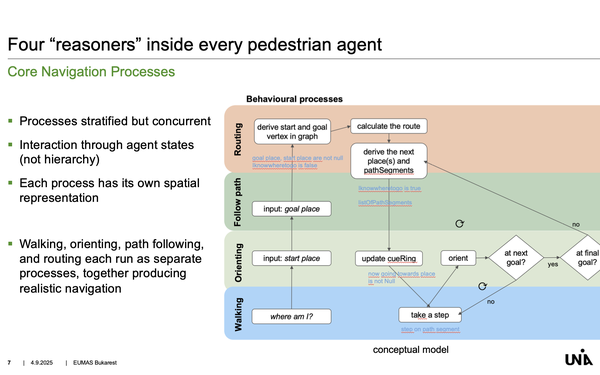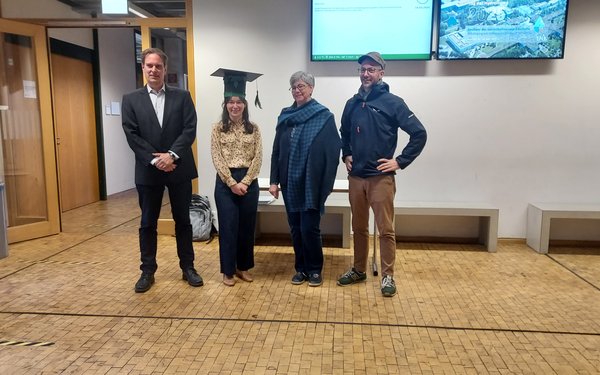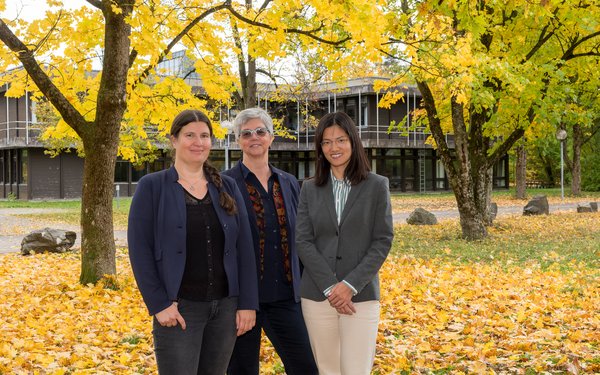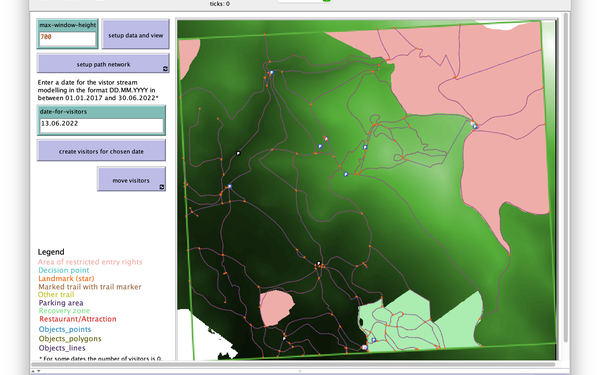Professor for Geoinformatics
The goal of the Geoinformatics Lab is to develop innovative computational methods for modeling, analysing and simulating human geo-spatial behavior. The focus is on
- processes using spatial cognition such as geographic space appropriation, perception and wayfinding
- dynamic complex systems such as multi-modal transportation networks
Such human-environment interactions may best be understood using a bottom-up perspective, ie. through implementing generative models while at the same time corroborating the usefulness of the models by analysing using a top-down perspective. We are currently exploring several methodologies, i.e., we work with agent-based modelling, geosimulation, classical spatio-temporal analysis, GIS models and extensions as well as GeoAI-methods.
News
Realistic Agent Behaviour based on Concurrent Process Architectures
New publication and presentation at the EUMAS conference in Bukarest, Sept 2025. The publication is titled "Realistic Agent Behaviour based on Concurrent Process Architectures - Modelling Human Navigation" and is the result of a collaboration between Prof. Sabine Timpf and Prof. Franziska Klügl from the Universitet Örebro in Sweden.
[Geoinformatics]
Congratulations Dr. Ismayilova




